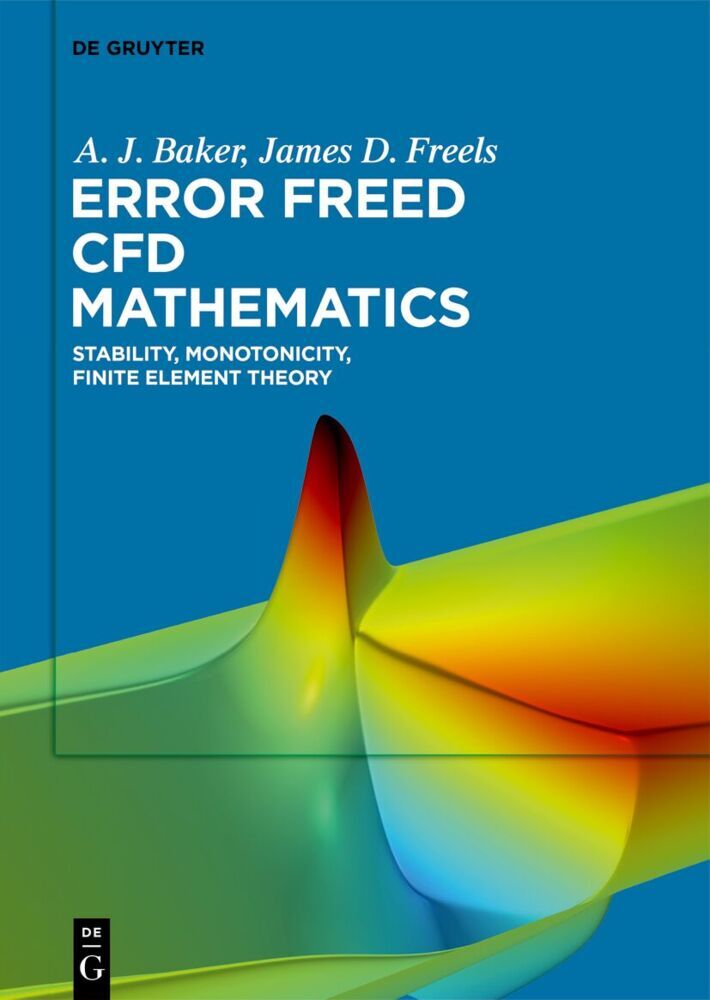Error Freed CFD Mathematics
Stability, Monotonicity, Finite Element Theory

Verfügbare Version:
Der Artikel erscheint laut Verlag/Lieferant voraussichtlich am 1. September 2025
Beschreibung
Error Freed CFD Mathematics analytically derives and validates nonlinear continuum calculus alterations to Navier-Stokes partial differential equation systems that completely annihilate the legacy CFD theory/practice intrinsic error mechanisms
- spatial-temporal discretization generated instability
- discrete algebra theorization limitations
- physics-based isotropic Reynolds stress tensor modeling
- weak linear algebra admitted non-convergence
that persist to compromise physics of fluids prediction fidelity. Weak formulation continuous Galerkin finite element (FE) basis theorization identifies cubically nonlinear continuum calculus tensor product functionals that totally eliminate the need for code phake physics stabilization. also stabilized shock capture. Resultant is classic tri-diagonal stencil equivalent generation of strictly monotone discrete approximations that are 4th order accurate in physical space, wave number space and implicit time on any mesh. Summarily, matrix differential calculus identifies all nonlinear contributions to the quadratic convergent Newton iteration algorithm to eliminate generation of non-converged solutions.
- covers incompressible/compressible laminar, turbulent, transitional thermal-fluid dynamics processes in multiply connected domains with shocks, contact surfaces
- rigorous theory derived asymptotic convergence, local and global error estimates, error quantification, stopping criterion for regular solution adapted nonuniform mesh refinement "on-the-fly" code execution at the optimal mesh solution
- mathematical complexity of TEA theory unstagnation advancements are keyed to ready alteration of current practice finite volume commercial/government and FE CFD codes
Produktdetails
| ISBN/GTIN | 978-3-11-914776-7 |
|---|---|
| Erscheinungsjahr | 2025 |
| Seitenzahl | 430 S. |
| Einbandart | gebunden |
| Format | 17 x 24 cm |

